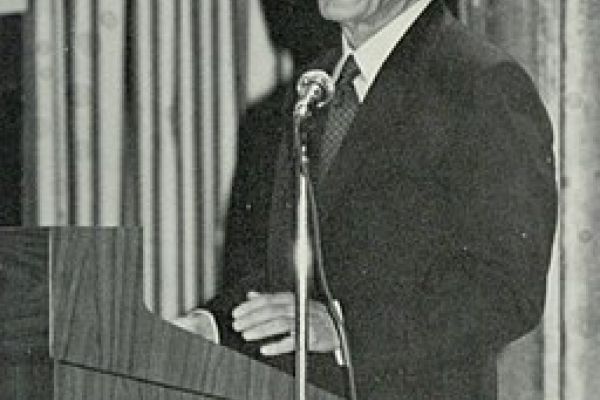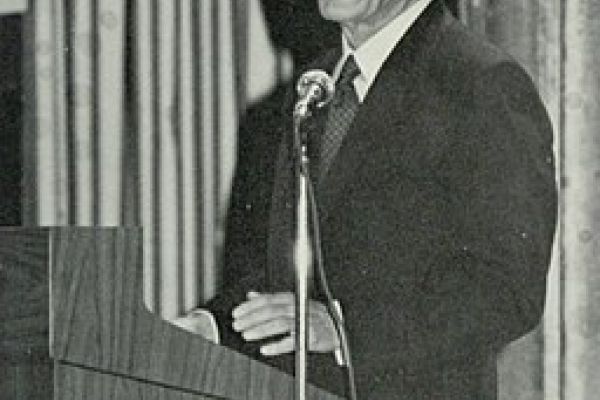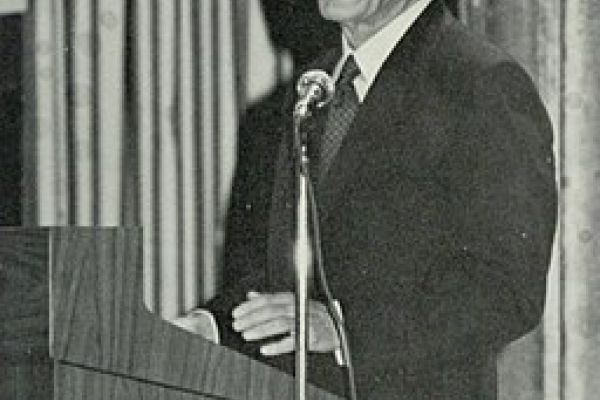Who Killed JonBenet? Part 2: The Ransom Note
A forensic psychologist considers a key piece of evidence in this perfect crime.
Posted February 23, 2017 Reviewed by Ekua Hagan
Some (but not all) forensic psychologists specialize in evaluating and sometimes treating criminal defendants or incarcerated convicts. Others, typically working closely with law enforcement, focus exclusively on criminal "profiling," which entails generating a detailed psychological description of unknown offenders based on scientific behavioral analysis of the crime scene(s), circumstances, or patterns of criminal activity.
With years or decades of clinical experience working closely and intensively with this population, the forensic psychologist garners a profound familiarity with and insight into the psychology of the criminal mind, i.e., the biopsychosocial roots of criminality and what motivates destructive human behavior, sociopathy, and evil deeds.
Such practical theoretical clinical training, and especially direct experience dealing specifically with this difficult and challenging population, places the seasoned forensic psychologist in a uniquely qualified position to analyze, understand, interpret and explain (to juries, students, and the general public) the core psychology and psychopathology of frequently violent criminality.
Moreover, conducting a forensic evaluation of a criminal defendant typically requires some retrospective reconstruction of the occurrence, sequence, and timing of events, behaviors and, perhaps most significantly, dangerous states of mind leading up to and culminating in the alleged criminal act.
As a forensic psychologist who was involved for many years in evaluating criminal defendants for the court system in California and called upon at times to testify as an expert witness in these serious matters, and as a still currently practicing psychologist and psychotherapist with four cumulative decades of diverse clinical work, my aim in this particular series of posts is to attempt to bring some of this accrued professional experience and expertise to bear on one of the most baffling unsolved criminal cases of the past 20 years: the as-yet-unsolved 1996 killing of 6-year-old JonBenet Ramsey.
In Part 1, I tried to collect, condense and synopsize some of the currently publicly available evidence, history, facts and a few of the most prominent and plausible of myriad theories regarding this extremely challenging case.
In Part 2 of this series, we will be examining one of the key pieces of evidence, namely the now infamous and enigmatic ransom note. Whoever wrote this rather unusual letter, be it Patsy and/or John Ramsey, as some still staunchly contend, or an unknown intruder, as the Ramseys always asserted—an assertion that has been officially and publicly supported by the former Boulder District Attorney Mary Lacy's exoneration of the Ramsey family (see Part 1)--did so with clear criminal intent.
What, if anything, might we be able to discern from a careful review of the wording, style and content of the note about the age, gender, background, personality, nationality, mentality, intentionality, and mysterious motivations of the author(s)?
What follows is a breakdown of the ransom note, exactly as it was written on several pages torn from the bedside pad of Patsy Ramsey and printed with a black felt pen (taken from and then interestingly returned to its original place in the home), before reportedly being found and read by Mrs. Ramsey.
According to her, the strange note was apparently intentionally left on the stairs leading down from her bedroom to the home's main level. This odd choice on the part of the writer is curious unto itself. What led him or her to leave the letter on the stairs instead of, say, on the kitchen table or in the bedroom of either John and Patsy or JonBenet?
If the intent was for the letter be discovered as early in the morning as possible, how could the alleged kidnapper have known of Patsy's habit of rising early and walking down these stairs to the kitchen to make coffee in the morning, unless the writer was intimately familiar with her daily routine? The note could have been left instead in the bathroom, for instance, where it might have been sooner seen, or right on the Ramsey's nightstand or on JonBenet's empty bed, the latter being the more dramatic and perhaps expected placement, stating and starkly demonstrating that we have taken your daughter from her bed and, to prove it, left this ransom note in her stead.
But it was supposedly placed instead on the stairs for some unknown reason. This suggests to me that the ransom note may have been written, but was at least left on the stairs, some time after the family had gone to bed that night after returning from a Christmas party, if indeed it was discovered there in the morning as Patsy claimed.
Or, in the theoretical case of a coverup, was placed there either by Patsy, in order to deceive John, or by Patsy and John conjointly after JonBenet was accidentally or intentionally killed that morning. But then, in the latter scenario, there would have been no need to stage it sitting on the stairs in the first place, if indeed it ever was left there by someone.
So the story of the ransom note, how and where it was found, and by whom and when, is the first major mystery here. Next, there is the question of who actually wrote the so-called ransom note, something fairly extensive handwriting analysis has so far been unable to definitively answer, despite reported marked similarities to Patsy's writing samples submitted to police. Whether a thorough psychological analysis of this ransom note has previously been conducted by a forensic psychologist in this case is unclear to me. But it certainly seems that such an analysis could potentially provide some valuable clues regarding the ransom note's creator(s).
Now let us examine, section by section, in some detail, through the lens of forensic psychology, the actual contents of this unusual note, which was either written by some unknown intruder or, as many still believe, by a member of the Ramsey family:
"Mr. Ramsey,"
To begin with, the note is undeniably and deliberately addressed solely to "Mr." John Ramsey, JonBenet's father, rather than to both John and Patsy (though there was, according to police, allegedly an impression found in the pad from which its pages were torn of a "practice" version which initially evidently considered addressing it to "Mr. and Mrs...."). Why?
This suggests to me that, if neither he nor his wife nor then 9-year-old son, Burke, wrote the note, as the official version now contends, John was specifically targeted by the perpetrator(s) for some reason: most likely, because he was the very wealthy owner of a thriving computer business or, as the author later in the note calls him, a "fat cat." If, on the other hand, the ransom note was, as some still believe, a ruse created by the Ramseys, both of whom were themselves middle-aged in 1996, designed to cover up what really happened that night, this scenario and choice of words was seemingly designed to make the missive more credible to the police and public.
It also suggests to me that the author may have been male, somewhat respectful of John Ramsey, and chauvinistic, perhaps feeling that this extortion business (or business in general) should be conducted between men only, which could comport with how the writer is self-described in the next line as being from some foreign (and perhaps less socially egalitarian) culture.
"Listen carefully! We are a group of individuals that represent a small foreign faction. We xx [the word "do" was crossed out here] respect your bussiness [sic] but not the country that it serves."
Here the author(s) for some reason identifies him/herself as a foreigner (not an American) and part of a group of co-conspirators acting on behalf of some other country or perhaps a disgruntled cadre of individuals who dislike America and are fairly familiar with John Ramsey's business. Interestingly, the choice of the rather obscure English word "faction" may be significant here, since it is formally defined as a small group from within an organization who are working in concert together against the organization. This suggests to me the possibility that the kidnapper(s), if indeed one ever really existed, could conceivably have been a disgruntled current or ex-employee(s) of John Ramsey's computer company. In that case, the writer of the ransom note most likely had met John and already knew something about him, his personality, his finances, and his family. Of course, if the Ramseys wrote the ransom note to cover up what really happened to their daughter that night, the suggestion that the kidnappers were enemies of America could have been a deceptive attempt to garner sympathy and support from the American public in particular. However, if the writer was in fact a foreigner, this could explain not only the possible chauvinism noted above, but also the spelling error (in bold here) on the word "business," though, naturally, this word could have been deliberately misspelled by the writer to mislead investigators. To say first that "we do respect you," later removing the emphatic word "do", indicates a feeling of deference and even admiration for Mr. Ramsey, almost sounding somewhat apologetic for what is being done to him. Referencing that John Ramsey's business somehow "serves" the U.S. seems somewhat bizarre, unless he was in fact contracted by and worked closely with the government. (His company in fact did do business with aerospace giant Lockheed Martin.) If so, who would know that? Certainly not a total stranger or random intruder. Who would see a private for-profit American business as existing to "serve" the country? Not most average Americans, in my view. Perhaps more likely someone who grew up in a foreign, socialistic, totalitarian, theocratic, communistic or third-world country?
"At this time we have your daughter in our posession [sic]. She is safe and unharmed and if you want her to see 1997, you must follow our instructions to the letter."
He/she claims "at this time" (suggesting the note was written or was designed to give the impression of being written after the abduction rather than in advance) to have JonBenet "in our posession." (The word is misspelled, as if the author has particular difficulty with English words containing the letter "s", again possibly indicating a non-native or relatively uneducated speaker).
This claim would typically refer to a scenario wherein a child has been or will be abducted and held in some remote location. Clearly, this was not the case, since JonBenet's body was found in the Ramsey home. Thus, either the author was anticipating and referring to such a scenario taking place after leaving the Ramsey home with JonBenet, or he/she was trying to deceive John and his family into believing JonBenet had been taken from the home, when in fact, she had not been. This statement would make no sense if either John or Patsy wrote it and staged the murder, since they would have already known that JonBenet would be found dead in the basement of their home, and had in fact never been in anyone else's "posession."
"You will withdraw $118,000.00 from your account. $100,000 will be in $100 bills and the remaining $18,000 in $20 bills."
This was reportedly the exact amount of John's Christmas bonus check from his company. So not only did the author apparently have familiarity with John's business, but also with his financial dealings, or at least with this particular fact. Either this was a pure coincidence, which seems highly unlikely, or the author, if not John, Patsy or Burke, had somehow learned of this bonus, suggesting he\she had been told by the Ramseys about it, somehow had access to this information through John's business or bank, or found this out by snooping around the home while the family was out attending a party on Christmas night and then deciding to demand this specific amount in the ransom note.
As others have pointed out, this is not only an extremely odd amount of ransom money for kidnappers to demand, but also fairly minimal given a) John Ramsey's significant net worth, of which the letter writer was likely aware and b) supposedly having to share the ransom money among a "group of individuals" allegedly numbering at least three (see below). And how likely is it that, if one or both of the Ramseys wrote the note, the exact amount of John's Christmas bonus would be demanded? Not very, since it would tend to be incriminating.
"Make sure that you bring an adequate size attache to the bank. When you get home you will put the money in a brown paper bag. I will call you between 8 and 10 a.m. tomorrow to instruct you on delivery."
The use of the word "attache" (which apparently included the correct accent mark) in this sentence (and several other word choices) sounds as though the author has a fairly sophisticated vocabulary, and tends to cast additional doubt in my own mind about the possibility that then nine-year-old Burke Ramsey could have written it, as some suspect. Moreover, employing the properly accented French term "attache" rather than the more common American word "briefcase," combined with misspelling of "possession" and "business," supports the probability in my mind that the author, if an intruder, may indeed be of foreign origin. The use of lower case rather than capital letters and periods in "am" (as opposed to the more usual abbreviation A.M.) hints again at the possibility of a non-native speaker or writer of English. Exceedingly interestingly, the writer states he will call John "tomorrow," suggesting that the note had been written either on Christmas day or in the wee hours of the morning after midnight. Otherwise, it would have necessarily specified something like "later today" or "this morning." What is the significance of the wording of this statement? Whether it was, as many people believe, written by either Patsy or John Ramsey, or both, or by the unknown kidnapper, the wording would seem to strongly suggest that it was composed and penned some time on Christmas day, which contradicts the theory that JonBenet was accidentally or deliberately killed prior to or shortly after midnight following the late evening return of the Ramsey family from a Christmas party.
"The delivery will be exhausting so I advise you to be rested."
This sounds to me like there was some complicated delivery of the ransom already planned out by the alleged kidnappers. Some point out that this scenario seems suspiciously similar to the plot of the film Dirty Harry, starring Clint Eastwood, in which Detective Harry Callahan is tasked to deliver a ransom to a crazed killer and kidnapper, despite his suspicion that the victim, a young girl, was already dead, which turns out to be true. The telling statement "I advise you to be rested" indicates to me, once again, that the note was created either on Christmas day or just shortly after midnight, because logically, if it had been written much later, there would be no realistic possibility of John being "rested" by the next morning. Moreover, the concern with John being sufficiently "rested" once again suggests some possible familiarity and empathy with, and even caring for, the kidnapper's extortion victim.
"If we monitor you getting the money early, we might call you early to arrange an earlier delivery of the money and hence a earlier delivery [this word was crossed out] pickup of your daughter."
The suggestion here is that John's movements will be carefully monitored as regards his going to his bank in the morning to get the ransom money. This may or may not have been true, even if the note was left by an intruder, but either way, it serves to try to dissuade John from deviating from the instructions provided. It also seems to, in effect, encourage his obtaining the ransom money as early as possible the following day. Why? And why, if the note was written by Patsy and/or John, would this seemingly totally unnecessary detail have been included? If the kidnapper(s) were real, as now officially supposed, and secreting themselves and JonBenet in the basement all along (a possibly original scenario I am proposing here), it would have been convenient for them to "deliver" JonBenet to her father as soon as he brought them the ransom money. Monitoring could have been fairly easily accomplished via the use of electronic eavesdropping devices and concealed video cameras both within the Ramsey home and possibly in their vehicles. However, no such devices were evidently discovered by investigators at the time, so either they did not exist or were hastily removed by the kidnappers before escaping from the home. The phrase "a earlier pickup" rather than "an earlier pickup" again hints at the possibility that English may not have been the writer's first language.
"Any deviation of my instructions will result in the immediate execution of your daughter. You will also be denied her remains for proper burial."
This is obviously another direct and explicit threat to ensure John's full compliance with the note's demands and instructions. Again, if her "executed" body had been in the basement all along, this additional consequence of being "denied her remains" would have been an idle threat. Either the author believed he\she\they could or would be able to actually deliver on this threat, requiring that they had JonBenet in their "posession," or it was only meant to cow John into compliance, assuming that JonBenet's body would not be discovered before then. That seems unlikely. This is another example of what would be a totally unnecessary detail, beyond the threat of "execution," to include had the note been composed by Patsy and/or John Ramsey. Perhaps it could be argued that, if the parents created the ransom note, these superfluous details were intentionally concocted and incorporated to make the note seem more realistic to police. But it would take significant time, though, and creativity it seems to me, for the author(s) to come up with and include all these convoluted details if the letter was in fact fake. Finally, the use of the phrase "any deviation of" rather than "any deviation from" suggests to me again the possibility of a non-native English speaker, and seems too subtle a detail to have been calculatingly included by John and/or Patsy Ramsey under duress.
"The two gentlemen watching over your daughter do not particularly like you so I advise you not to provoke them."
This statement suggests, again, that the kidnappers, allegedly numbering now at least three, are personally familiar with John Ramsey and his business, enough so that though they "respect" his business, they "do not particularly like you." This, in conjunction with the writer's apparent familiarity with Mr. Ramsey's business and informal use of his first name, suggests that the author and at least two other fellow kidnappers actually knew or had met John Ramsey at some prior time. It seems to me that this supports the notion that the kidnapper(s) could have been employed by John Ramsey at some point. Or, alternatively, that this is what whoever wrote the ransom note wanted either John Ramsey or the reader to believe.
"Speaking to anyone about your situation, such as Police, F.B.I., etc., will result in your daughter being beheaded. If we catch you talking to a stray dog, she dies. If you alert bank authorities, she dies. If the money is in any way marked or tampered with, she dies. You will be scanned for electronic devices and if any are found, she dies."
Another grotesque and shocking homicidal threat to evidently ensure full compliance. JonBenet will not only be merely "executed," but "beheaded," to boot, and he (and Patsy) will be "denied her remains for proper burial." This begs the question: Is it possible that this was indeed a legitimate ransom note written by a representative of a determined and committed cadre of kidnappers who, discovering that John had deviated or intended to deviate from their very specific instructions, hastily executed JonBenet, leaving her dead body in the basement? In other words, did JonBenet die, almost being beheaded by a garotte-like ligature twisted tightly around her neck, because the kidnappers decided at some point that morning after Christmas that John was not going to cooperate with them? The main problem with this theory is that her body was discovered in the basement of the Ramsey home, which would have required that the kidnapper(s) held her there initially, possibly planning to take her elsewhere before things went wrong. Again, a highly unlikely scenario. Still, it would have been a bold and diabolically brilliant move to hold JonBenet captive in their own spacious home's basement-- somewhere they never looked initially because they assumed she had been taken from the home--as they may have from that location monitored electronically Patsy and John's desperate deliberations as to how to respond to the ransom note. When it became clear to the kidnappers that the Ramseys were not going to follow their direction not to contact the authorities, for example, JonBenet could have been immediately "executed," exactly as they had so graphically threatened to do. Given the length of time transpiring between that fateful and frantic phone call to 911 (made minutes before 6:00 AM) and John finding her body in the basement in the early afternoon (exact time unknown), this scenario is conceivable, since, as I noted in Part 1, rigor mortis starts setting in around 4 hours after death, which could put JonBenet's time of death at as late in the next morning as 8 or even 9:00 AM. Had JonBenet been held against her will in her own basement that morning, bound and gagged (by duct tape) by her abductor(s), who carefully monitored what was being said in the home that morning from this unsuspected and unlikely location? If so, the intruder(s) may have hunkered down there overnight, cruelly killed and defiled the captive JonBenet, and escaped undetected through the basement window, using a suitcase as a makeshift step up to that raised broken basement window. But this presumably could only have happened prior to the police arriving at the Ramsey home following the frantic 911 call from Patsy. Unless, that is, the intruder(s) exited undetected through the basement window while the police (which most Americans would not spell with a capital P as is done here) were preoccupied with interviewing the Ramseys inside the home.
"You can try to deceive us but be warned that we are familiar with Law enforcement countermeasures and tactics."
This statement begs the question of whether the writer of the ransom note has actually engaged in similar criminal behaviors before. From where would such familiarity with "Law enforcement" come? (Again, it is somewhat unusual I believe for an American to capitalize the L in law enforcement.) Professional criminals? Sociopaths? If they monitored the 911 call by Patsy just prior to 6:00 AM, as they suggest would happen, they would certainly know that it would be a matter of only minutes before police arrived at the Ramsey residence, providing figuratively (and perhaps literally in this case) a very narrow window of opportunity to escape. However, if the discussion, and probably understandably heated debate, between John and Patsy leading up to the 911 call had indeed been monitored electronically by the kidnapper(s), there could have hypothetically been sufficient time to brutally kill JonBenet as previously promised and then to quickly escape through the narrow basement window unseen.
"You stand a 99% chance of killing your daughter if you try to outsmart us. Follow our instructions and you stand a 100% chance of getting her back."
Here the author places almost total responsibility for JonBenet's death onto her father, John, should he try to "outsmart us." Almost, but not quite total. Why speak of "a 99% chance of killing your daughter" as opposed to "a 100% chance of getting her back"? Seems strange. Maybe the author is acknowledging the slightest (1%) possibility of being thwarted or apprehended and prevented from killing JonBenet. But why would he or she do that? Clearly this statement is designed to dissuade John from doing something other than what they want him to do. But it infers that there is an albeit slim (1%) chance of John's deciding to deviate from the plan not inevitably resulting in his daughter's demise. This almost sounds like a direct challenge being posed to John, suggesting some possible prior relationship.
"You and your family are under constant scrutiny as well as the authorities."
The notion that the kidnappers are omniscient and omnipresent as regards scrutinizing and monitoring the Ramsey family "as well as the authorities" seems totally grandiose. Also, the use of the word "scrutiny" suggests something more critical than mere observation, and demonstrates a fairly sophisticated vocabulary. However, it may have served mainly as a scare tactic intended to force the family to comply with their demands without deviation if indeed it was written by an intruder.
"Don't try to grow a brain John."
This is clearly a hostile and demeaning statement. John Ramsey was a highly successful and well-respected businessman, as the author or the ransom note knows. So why suggest so sarcastically that he is not intelligent, i.e., has no "brain"? Does this sound like something he would write about himself? Or that Patsy would say if she were the author? I doubt it, but, if so, it would be a very clever and deceptive inclusion, leading the reader to conclude that the kidnapper knows John and, like his two accomplices, has a very low opinion of his intelligence. It has a ring of both familiarity and contempt, the kind of contempt that typically stems from familiarity.
"You are not the only fat cat around so don't think that killing will be difficult."
Meaning that they have done this before to other affluent families? That they have kidnapped and killed children before? As noted earlier, the use of the term "fat cat" seems somewhat unusual in 1996, hinting perhaps at the age of the author. In an interview, John Ramsey responding to a question regarding the use of this term in the ransom note made mention that he was part of a select group of so-called "fat cats" in Atlanta. This expression, "fat cat," is a bit anachronistic, and not as commonly used today as it once was, say, in the 1960s, indicating to me that the author may be a relatively older rather than younger individual who was around during those days and exposed to that phrase, a person perhaps at least in his/her 30s at the time of this crime or possibly considerably beyond. This would tend to rule out nine-year-old Burke Ramsey as the writer, though such slang can still be picked up from movies, books, etc. But how does John Ramsey being only one of many such "fat cats" in the area correlate with him thinking "that killing will be difficult"? Perhaps the implication is that if he does not comply completely with the author's demands the kidnappers will not hesitate to kill JonBenet, then moving on to the next wealthy victim.
"Don't underestimate us John."
This statement expresses some concern on the writer's part that his/her demands and threats will not be taken seriously. Might there have been a particular reason for this concern, based perhaps on some previous dealings with John Ramsey? Or with other victims?
"Use that good southern common sense of yours."
Again, this has the flavor of familiarity. Most Americans would, I think, tend to capitalize the word "southern" in this sentence. The author obviously knows John hails from the South, either because he has researched his background or met him or knows someone who did. Or, because it was in actuality John or Patsy who penned the note themselves.
"It is up to you now John!"
This again places the entire responsibility for JonBenet's life or death squarely and cruelly onto John's shoulders, in an apparent effort to convince him to cooperate. If indeed this note was written after JonBenet was dead, as some suppose, this comment could only be seen as a sadistic and deliberate effort to make John feel horrifically guilty, suggesting a motivation that is more personal and resentful than monetary.
"Victory! S.B.T.C"
Victory over what? Defeating John Ramsey? Beating the system by extorting the money? Was this a vindictive "act of war" against the Ramseys by individuals who somehow felt oppressed or wounded by them? And what are we to make of the totally cryptic signature initials: S.B.T.C? (There was no period following the C for some reason.) Another great mystery. If the Ramseys wrote this ransom note, there would have been no need to sign it this way. Why bother? If an intruder wrote it, why sign it at all? And to what or whom do these initials refer? Signing such a potentially incriminating document indicates a certain degree of pride regarding its content and construction. It also suggests that the kidnapper(s) may have been taunting the Ramseys and authorities, challenging them to try to catch them. This hints again at a possible streak of narcissistic grandiosity in the author, which can also be found in earlier comments demeaning John's intelligence, claiming superior knowledge of law enforcement methods, etc.
What would it take to conceptualize and create a ransom note such as this in order to cover up JonBenet's accidental or deliberate death? It seems to me to be a tall order for two bereaved and panicky parents to come up with such details and diabolical plotlines under pressure on such short notice. Based on what we know of the timeline, it seems doubtful that they would have had more than about 5 hours to come to terms with JonBenet's being gone, decide to cover up how it really happened, concoct the convoluted kidnapping story, stage the torture and murder of their dead daughter, and create the time-consuming carefully printed handwritten ransom note.
To summarize, considering all of what has been discussed here thus far regarding this key piece of evidence in the JonBenet Ramsey case, and doing so more or less out of context rather than considering in totality the available facts of this puzzling case, I am left with the following impressions. The complexity of the contents of the ransom note and the circumstance within which it would have had to be written, incline me to conclude that it is unlikely--though not impossible--that this lengthy note was composed and penned by either Patsy or John or Burke Ramsey or by Patsy and John in collusion to cover-up the actual cause of JonBenet's death. This conclusion comports with, albeit for different reasons, that of the Boulder District Attorney's public exoneration of the Ramsey family in this case.
If I am correct in my conclusion, considering solely this single piece of evidence for right now, the inescapable implication is that there was indeed one or more intruder(s) in the Ramsey home that fateful Christmas night who must be responsible for writing the ransom note and for sexually abusing and executing six-year-old JonBenet, though not necessarily in that order. (This directly contradicts the theory that it was Burke who killed his sister as strongly suggested in the 2016 CBS special, though this possibility cannot be completely ruled out.) Clearly, the identity of this criminal perpetrator(s) remains currently unknown to us. I doubt that such an intruder, if he or she did in fact exist, chose the Ramsey home at random without prior knowledge about John Ramsey and his business. My best guess, given the current information available to me at this time, is that the individual(s) guilty of this evil deed probably worked for or closely with John Ramsey at some time, and for reasons unclear to us, bore some kind of strong grudge against him. It seems to me that the very violent and cruel nature of the language in the note and of the atrocious treatment of JonBenet suggest that this crime went far beyond a kidnapping for profit. Rather, it was more likely an act of resentment, embitterment, of anger, revenge, of rage and hatred against the rich John Ramsey and his vulnerable family. Paying a ransom of $118,000.00 would, for Ramsey, have been a relatively small and affordable price to pay for the safe return of his beloved daughter. But this crime was apparently never primarily about money, in my estimation. It was probably about payback, retribution, punishment, humiliation, and the cruel infliction of unimaginable pain upon John Ramsey and his family, presumably in response either to perceived slights or injuries attributed to Mr. Ramsey and/or motivated by extreme envy and jealousy about his successful professional and personal life combined with the illegal lure of easy money. The perpetrator(s) sadistically and purposely took from John and Patsy what would hurt them the most, that which is most precious to any loving parents.
If there is going to be any renewed investigation in an effort to find the true author of this ransom note and thus solve this twenty-year-old cold case, I would recommend, based on my reading of it, reviewing any former then-middle-aged but now 50+ male suspects or not previously interviewed individuals who were employed by or worked closely with John Ramsey prior to the killing, had any known reason to resent or intensely dislike him while, at the same time, respecting his success, have any prior history of extortion, pedophilia and/or violence, sociopathic behavior, and who may not have been born or raised in the United States.
Please feel free to comment on my conclusions and recommendations, and to add any of your own! We will be discussing additional aspects of this controversial case in Part 3.


















